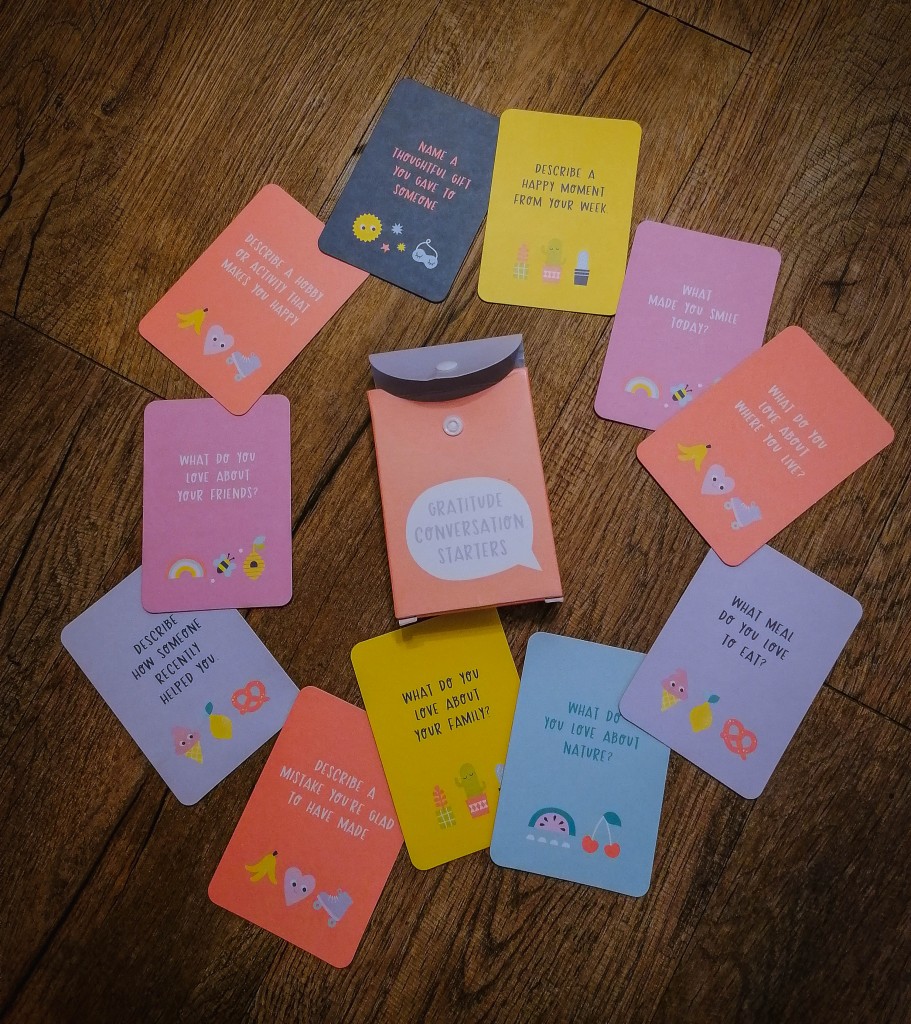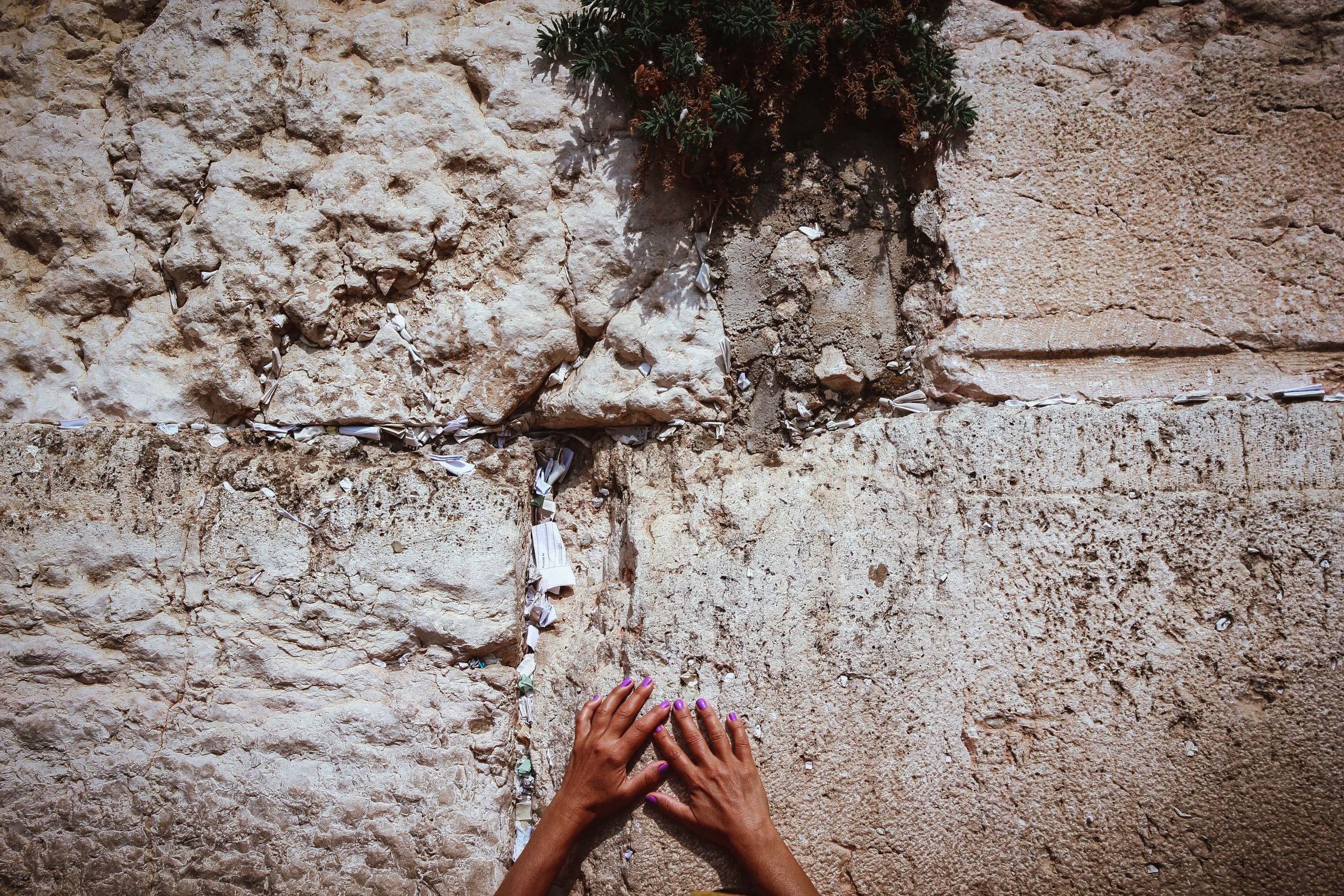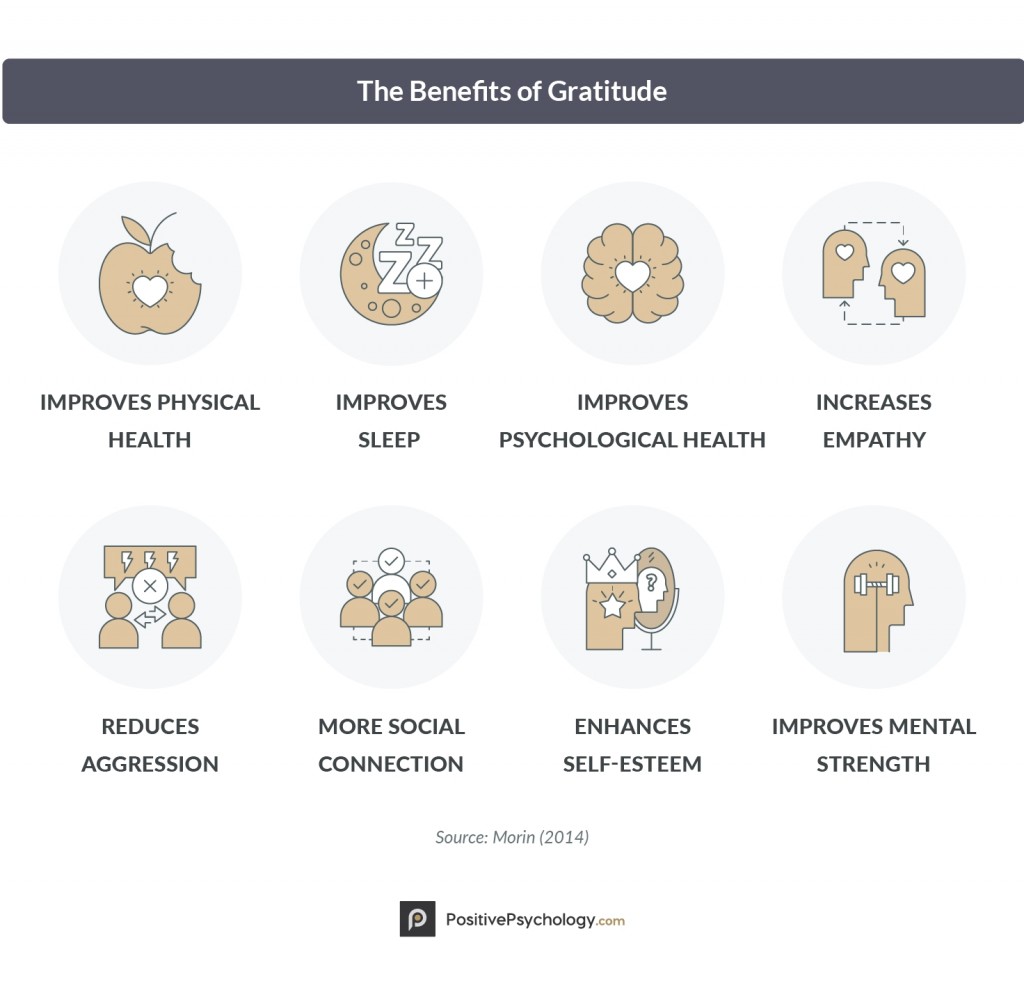“Gratitude is when memory is stored in the heart and not in the mind.” – Lionel Hampton
As I mentioned in my last blogpost Gratitude has a positive effect on our mental health. When I was in Australia I went to a cute little shop where you can buy different mindfulness-based planners, diaries, journals and notebooks and I found a pack of cards with the title “Gratitude Conversation Starters” by kikki.K. I loved the idea of playing a card game with these questions regarding gratitude and I thought that I can use them also with my clients at work. As my 2 month Australia-New Zealand trip with one of my friends was the first time when I spent Chtistmas away from my family and home, I decided to play this “game” with my friend on Christmas Eve. It made us feel even better as we answered all those questions about gratitude and we could celebrate Christmas being grateful for a lot of things that we wouldn’t even think of in our everyday life. To tell the truth we didn’t have a difficult “job” to find answers to the questions as we were on a 2 month long holiday and we experienced beautiful things every day but it helped us to appreciate them even more.
It is important and useful to think over what we are grateful for in our everyday life as most of the time we have the feeling that nothing special happens with us, we can get tired of the routines, we don’t notice the basic things but we take them for granted and that’s why it is even more important to remind ourselves what the little things are that we are grateful for. Besides it makes us more self-reflective and it helps us to reflect our needs and preferences. We can benefit from the practice of expressing thanks even in times of challenge and change that we experience nowadays.

What is gratitude?
Gratitude has many synonyms like acknowledgment, appreciativeness, grace, gracefulness, gratefulness, praise, recognition, requital, responsiveness or thankfulness.
Gratitude is an emotion expressing appreciation for what one has.
Many of us express gratitude by saying “thank you” to someone who has helped us, been kind to us or given us a gift. Gratitude is a positive emotion that has psychological, social and religious aspects. We experience gratitude after getting some sort of gift (psychological aspect), we can express it towards a person who gave us a gift (social aspect) and we can direct our gratitude also towards a higher power (religious aspect).
The purpose of this emotion is to strengthen our social relations and to form new ones. We can use acts of gratitude to apologize, make amends and help solve other problems. Being grateful can motivate us to make the best out of our day and be our “best self” today.
Gratitude is a selfless act and that’s why it works. It is done unconditionally to show people that they are appreciated, that means that we don’t expect a return for that but sometimes this return happens anyway because of our act.

Benefits of Gratitude
“Gratitude helps you to grow and expand; gratitude brings joy and laughter into your life and into the lives of all those around you.” – Eileen Caddy
Here you can see an overview about the benefits of being grateful:
1. Gratitude improves physical health.
Grateful people are more likely to take care of their health, to attend regular check-ups and they exercise more often. They also experience fewer aches and pains and gratitude can reduce their blood pressure. To sum up a grateful person is more likely to enjoy not just better physical health, but also psychological health.
2. Grateful people sleep better.
Gratitude journaling increases sleep quality. Spend just 15 minutes writing down a few grateful feelings before bed, and you may sleep better and longer.
3. Gratitude improves psychological health.
Gratitude increases happiness and reduces depression as it enhances positive emotions and it reduces a multitude of toxic emotions such as envy, resentment, frustration or regret. Simply journaling for 5 minutes a day about what we are grateful for can enhance our long-term happiness by over 10%.
4. Gratitude increases empathy.
Gratitude can decrease our self-centeredness and make us behave in a prosocial manner. Grateful people experience more sensitivity and empathy, they help and give others more.
5. Gratitude reduces aggression.
As gratitude makes us more giving, social and empathic people, it reduces aggression and our desire to seek revenge.
6. Gratitude opens the door to more relationships.
Gratitude makes people like us, it gives us access to a wider social network, more friends and better relationships on average. It improves the quality of our friendships, romantic relationships and increases social support. Saying thank you to your friends, family, colleagues or a complete stranger acknowledges other people’s contributions that can lead to new opportunities.
7. Gratitude improves self-esteem.
Being grateful reduces social comparisons, which is why grateful people are able to appreciate more other people’s accomplishments. Gratitude can help you feel better about your circumstances, which can lead to feeling better about yourself.
8. Gratitude increases mental strength.
Recognizing all that you have to be thankful for —even during the worst times—fosters resilience and helps you overcome trauma.

Gratitude Conversation Starters
Now I would like to introduce you the Gratitude Conversations Starters.
The following questions can be answered for ourselves, we can add them to our journaling practice or we can play with the questions as a game with our friends and family. Let’s get started with our Gratitude! 🙂
- What are you grateful for?
- What was a highlight from today.
- Describe a happy moment from your week.
- What made you smile today?
- What meal do you love to eat?
- What do you love about where you live?
- Name a song that makes you feel happy.
- What do you love about winter?
- What do you love about spring?
- What do you love about summer?
- What do you love about autumn?
- Who are you grateful for?
- What would you like to thank?
- Name three things that made you happy today.
- Describe one thing you’re really good at.
- What do you love about your home?
- What made you laugh today?
- Finish this sentence. Today was wonderful because…
- What did you learn today that you’re grateful for?
- Describe something beautiful around you.
- Describe a memory you cherish.
- What are you proud of?
- How did you help someone today?
- Describe how someone recently helped you.
- Describe a mistake you’re glad to have made.
- What do you love about your family?
- Describe one of your positive qualities.
- What do you love about nature?
- What do you love about your friends?
- Describe a hobby or activity that makes you happy.
- What was fun about today?
- Name a beautiful gift you gave to someone.
- Who or what inspires you?
- When you look outside, what do you see that you are grateful for?
- What opportunity are you grateful for?
- Think of a positive thought. Say it out loud.
- What’s a tradition you’re thankful for?
- What talents or skills do you have that you’re grateful for?
- Name a taste or flavour that makes you happy.
- Name one smell or scent that always makes you happy.
- Name a sound that always makes you happy.
- Describe a texture that you love.
- Describe a time when a stranger helped you.
- What is something that you achieved recently?
- Name someone who has taught you something.
- What’s a book you loved reading?
- Describe something you do every day that you’re grateful for.
- What’s a film you loved watching?
- What is something that you might take for granted that you are grateful for?
- What about your body are you grateful for?
+1 What belongings of yours are you thankful for?
Thank you for your interest and have fun with your Gratitude practice!




